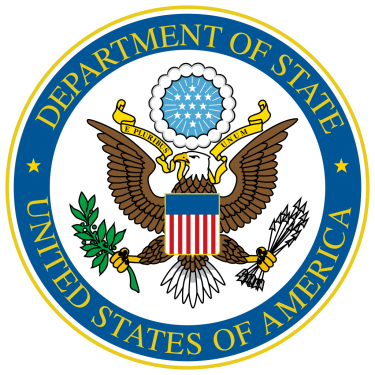The Effect of Technology on the Performance of Letters Rogatory Procedures
What You Need to Understand About Letters Rogatory in Cross-Border Cases

Definition of Letters Rogatory
Letters rogatory are official demands made by a court in one jurisdiction to the proper judicial authority in another territory, looking for help in acquiring evidence or offering lawful papers. This legal instrument is particularly considerable in cross-border cases where direct interaction in between judicial authorities is either impractical or otherwise allowed because of legal restrictions.
Commonly, letters rogatory are used in civil and criminal matters, permitting courts to ask for the collection of testimony, papers, or other essential materials from outside their jurisdiction. When a court determines the demand for evidence that can not be collected domestically, the procedure begins. Following this, the requesting court prepares an official letter detailing the certain info or action required, making sure conformity with both jurisdictions' lawful criteria.
As soon as sent, the recipient court reviews the demand and carries out the needed proceedings in accordance with its own regulations (Letters rogatory). The efficiency of letters rogatory relies heavily on worldwide treaties and arrangements, which promote cooperation among countries. This mechanism highlights the significance of mutual lawful aid in promoting justice throughout borders, making certain that lawful procedures are not impeded by geographical boundaries
Objective and Importance
Facilitating global teamwork, letters rogatory serve a vital objective in the world of cross-border lawful proceedings. They operate as official requests from a court in one jurisdiction to a court in another, seeking support in collecting proof or carrying out exams significant to an instance. This mechanism is vital when a party requires to get testimony or records situated outside their very own territory, making sure that lawful procedures are not prevented by geographical limits.
The value of letters rogatory can not be overemphasized, as they play a crucial duty in promoting the integrity of lawful systems throughout countries. By offering an organized approach for worldwide cooperation, these letters aid to keep regard for every nation's sovereignty while promoting the discovery process crucial for reasonable tests. They also make sure that proof is accumulated in a way that sticks to the legal standards and treatments of the requesting jurisdiction.

Refine of Issuing Letters Rogatory
The process of releasing letters rogatory involves numerous vital steps that need to be carefully complied with to ensure compliance with both domestic and global lawful criteria. A demand for help need to be prepared, describing the details evidence or statement looked for from the international territory. This request ought to clearly state the facts of the case, the significance of the proof, and the lawful basis for the demand.
Once the demand is drafted, it is normally sent to a domestic court or relevant authority for authorization. The court may evaluate the request to ensure it sticks to step-by-step click to read more requirements and straightens with international treaties or conventions controling mutual legal help.
Upon authorization, the request is formally converted into the language of the international jurisdiction, as called for - Letters rogatory. Ultimately, the letters rogatory are sent to the appropriate international authority, frequently through central authorities or diplomatic networks marked for such objectives
Challenges and Limitations
In cross-border lawful proceedings, browsing the challenges and restrictions of letters rogatory can substantially impact the performance of proof event. One major obstacle is the varying legal requirements and procedural requirements throughout jurisdictions. Different countries might have distinctive policies concerning the admissibility of evidence, which can make complex the execution of letters rogatory.
Furthermore, the time called for to refine these demands can be significant. Hold-ups in the international territory might impede prompt access to essential proof, which can threaten the overall situation. Language barriers also pose significant challenges; ensuring precise translation of documents and statement is vital but can present additional problems and possible false impressions.
Moreover, there is frequently an absence of reciprocity in the treatment of letters rogatory. These obstacles require cautious planning and consideration by lawful professionals involved in cross-border litigation.
Finest Practices for Legal Professionals
Reliable techniques for lawful professionals navigating letters rogatory in cross-border situations can greatly enhance the probability of successful proof event. It is vital to extensively recognize the legal structures and step-by-step demands of both territories involved. This knowledge will certainly aid in composing a accurate and clear demand that straightens with the getting country's legal standards.
Following, establishing solid interaction with international lawful representatives can promote the process. Engaging local advice that recognize with the nuances of their lawful system can supply indispensable understandings and assist browse potential mistakes. It is also useful to consist of comprehensive details regarding the proof sought, making sure that it is necessary and pertinent for the situation.

Final Thought
In recap, letters rogatory serve as a vital mechanism for acquiring evidence in cross-border lawful matters. Their value lies in assisting in worldwide cooperation site while appreciating national sovereignty. The process of issuing such requests involves navigating complex legal structures and possible diplomatic obstacles. Sticking to ideal practices enhances the possibility of successful results. Ultimately, understanding the subtleties of letters rogatory is vital for lawyers involved in worldwide litigation.
Letters rogatory play go to these guys a critical duty in assisting in the exchange of evidence throughout international borders, offering as a bridge between diverse lawful systems. As we check out best practices and the subtleties of this legal mechanism, it comes to be clear that mastery of letters rogatory is indispensable for efficient international lawful technique.
In cross-border lawful process, browsing the obstacles and restrictions of letters rogatory can dramatically affect the performance of evidence celebration.Effective methods for legal experts browsing letters rogatory in cross-border situations can significantly enhance the chance of effective evidence event.In summary, letters rogatory serve as an essential device for acquiring proof in cross-border legal issues.